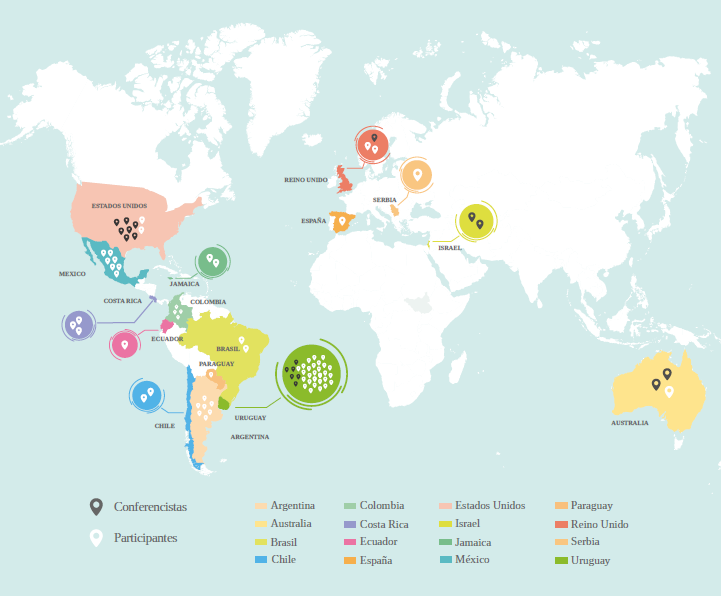News

EdTech Winter School 2018
RETHINKING EDUCATION IN THE AGE OF DIGITAL TECHNOLOGY
CENTER FOR RESEARCH – CEIBAL FOUNDATION
SUMMARY
- Which is the current landscape of digital education across the world?
- Which are the challenges and complexities affecting education and which actions are been taken to address the first?
- Are education systems responsive to societal needs and technological change?
- Which is the role of digital technologies in education; including institutional and policy frameworks,teachers development, practices and pedagogical methods; teacher and students role in the teaching-learning equation, students’ learning practices and skills acquisition; students performance, evaluation and assessment among others?
- Have digital technologies generated or enhanced changes in teaching and learning practices and if so, which is the potential of these changes to translate into long-term learning improvements and outcomes across the world?
- Are digital technologies fostering disruption or innovation in pedagogical models or teaching practices?
- Is education preparing students for the future of work and which is the role of digital technologies in that field?
- How are we assessing and evaluating education in the age of digital technology?
OBJECTIVES
- To create a collaborative environment of discussion and analysis involving keynote speakers from a diversity of international universities and research centers, along with early career scholars and students. This will be an opportunity for learning about novel research methodologies and scientific perspectives enabling capacity-building and knowledge transfer in areas of common interest.
- To present and exchange national and international research-based case studies across the five lines for research of the Winter school: Social uses of ICT and Digital Culture; Resources and Platforms; New Ways of Knowing, Learning, Teaching and Evaluate; Extended learning achievements and Educators in the Digital Age.
- To create a long-term international academic network of excellence in education and technology (EdTech) based on multidisciplinary studies with different methodological perspectives. The academic network aims to enable international capacity building in the fields of EdTech, innovation and inclusion. This community will be also of great value for promoting and implementing international research projects, seminars and initiatives in the field.
- Collaborate in a special publication that will be prepared, where attendees will disseminate the results of their work during the workshops
- Explore future collaborations in areas of common interest;
- Become a Ceibal Foundation’s affiliate and participate in collective books publications,
- Dissemination of academic works in the Institutional Repository of Ceibal Foundation, among other scientific initiatives.
PROGRAM (4 days +1 open day)
- During a week of academic activities, the participants acquired valuable knowledge, skills and significant perspectives in the fields of EdTech, educational innovation and social inclusion. The official language of the event was in English, so the participants had to have a good command of the language.
- The program combined lectures, training, workshops, based on joint project-based learning.
- International academics and renowned experts were invited to discuss their latest studies and work together with the participants during the workshops.
- The participants also organized themselves into teams to design research projects or an impact assessment study of a national EdTech policy. This multidisciplinary work was presented as a poster at the end of the Winter School with the assistants and other communities.
- Several social activities were included in the program.
Learn about the working groups and the presentations made during the school
DESCRIPTION OF THE PARTICIPANTS
- National and international postgraduate students enrolled in a doctorate, a master’s degree or a specialized course at the time of application;
- Researchers and national and international teachers;
- Makers of national and international policies involved and / or interested in education and technology.


SPEAKERS
Luci Pangrazio, PhD. Luci is a Research Fellow in digital literacies/ digital texts at REDI – Research for Educational Impact: Deakin University’s Strategic Research Centre for research in Education. Working with Professor Catherine Beavis, her research focuses on critical digital literacies and the changing nature of digital texts. She is currently studying young people’s practices and understandings of personal data. Her research interests include digital literacies, data literacies, young people’s digital worlds, software studies, platform studies, and creative and critical research methods. Luci’s book ‘Young People’s Literacies in the Digital Age: Continuities, Conflicts and Contradictions in Practice’ will be published in 2018 by Taylor and Francis.







